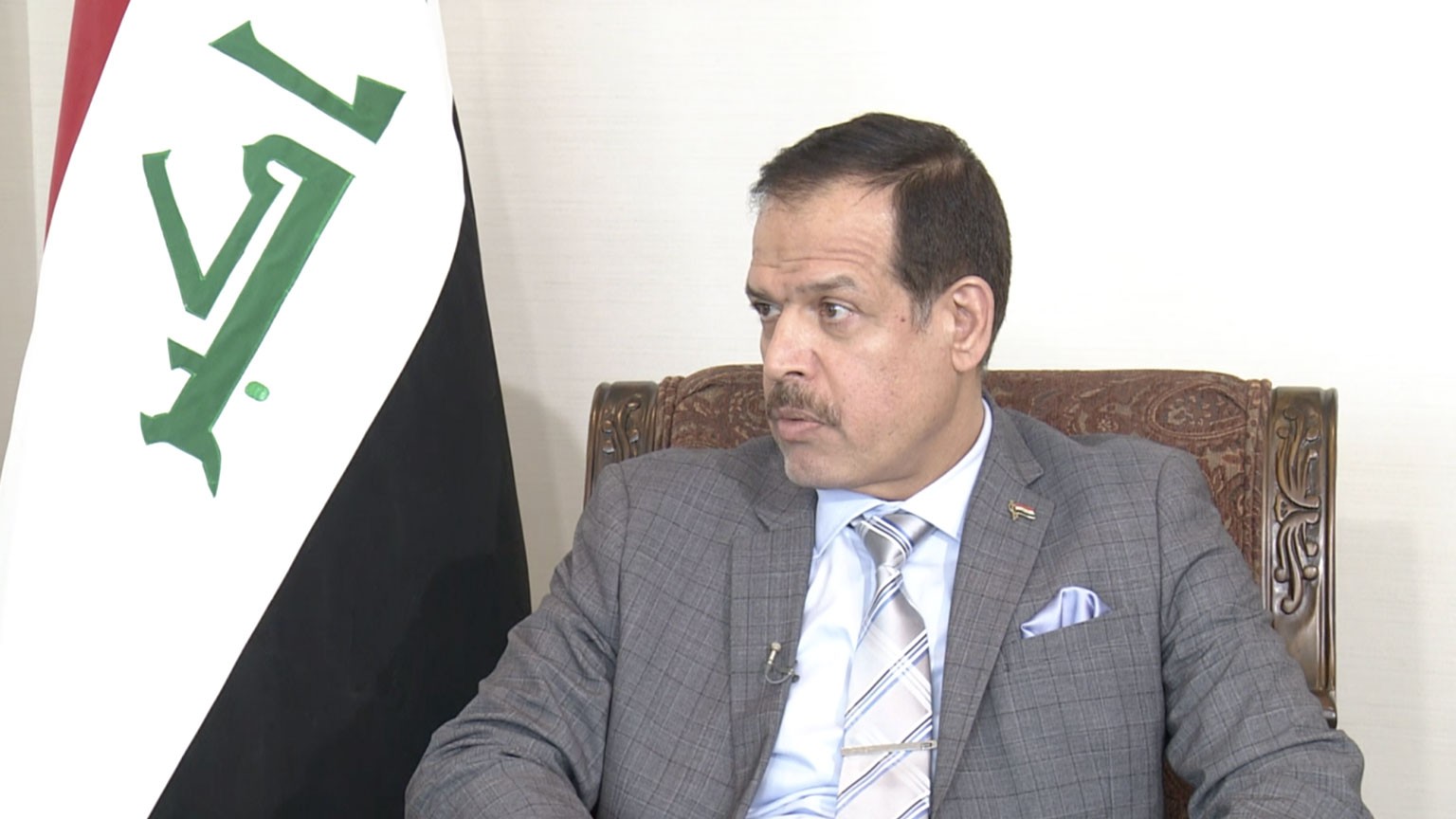Kaab was a human rights activist imprisoned under Saddam Hussein's rule because of his political activities. The civil engineer eventually fled Iraq in the mid-1990s with his family, first to other countries in the Middle East, and later to Germany. While he was working in Britain in 2009, the Iraqi parliament appointed him the country's ambassador to Finland.
That was the first of a string of top diplomatic postings around the world. Since 2021, he has been the ambassador to Japan.
He candidly shares his views on the challenges of the democracy installed by the US, as well as his hopes for the future.
As a Mediator of "A New Page"
On March 10, the world was astounded when longtime rivals Iran and Saudi Arabia agreed to reestablish diplomatic ties.
Ambassador Kaab says his country played a significant role in that. "Iraq was the first broker of this deal, although we have seen China only at the scene," he notes.
"It's good to have China, but Iraq was starting this and I am one of the eyewitnesses of our efforts, my government's efforts, for years. I think it's of big significance to Iraq to be a trustworthy mediator that can defuse the crisis in the region."
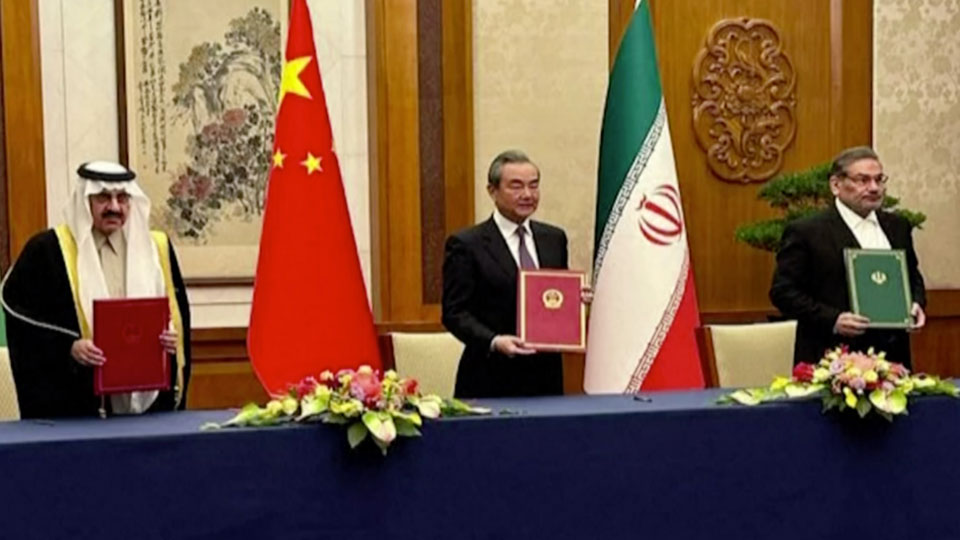
Inside Saddam Hussain's regime
There was a time when Kaab could have barely imagined such a diplomatic scenario. In 1979, when Saddam Hussein staged his coup, the ambassador was in his first year at Bagdad University. His participation in anti-dictatorship protests would land him his first of three stints in prison—including two years in the infamous Abu Graib. Many of his friends and family were executed.
The human rights activist became a political prisoner. "At that time, we didn't have political parties, no political parties. Nor any freedom, any kind of freedom; freedom of speech, freedom of political affiliation, freedom of movement.
"There was no freedom of travel, and Iraqis could not read and write or watch anything that had not been approved by the regime. But I was lucky not to be executed in 1979 or later. I always consider my life after 1979 as an extra time given to me by God.
"I think my duty, and according to my religion, and in accordance with my personality, was to do something to change the regime and to have better and just system of governance for my country."

The 2003 invasion: Watching from abroad
When the US-led coalition invaded Iraq, Kaab looked on with mixed feelings from Germany.
"I was happy, because finally the time had come to get rid of this criminal regime and absolute dictator," he says. "But I was very sad at the same time as I saw the massive bombs used on my people, on Baghdad, on the infrastructure.
"I was sad because of the mass destruction of my country by using excessive unnecessary force to destroy everything. The invasion was not in accordance with the United Nations Charter, which made it illegal, which means it was unethical, especially if we see its consequences."
After the fall of Saddam Hussein's regime, Iraq began working toward self-governance based on a new system installed by the US. But it has been a constant struggle. People endured years of violence and chaos as the country was consumed by civil war. Later, the threat of the Islamic State extremist group added further pressures. According to the NGO Iraq Body Count, more than 200,000 civilians were killed in hostilities over two decades.
Although security has improved, in 2019, dissatisfaction over prolonged high unemployment and inadequate public services led to an unprecedented string of protests.
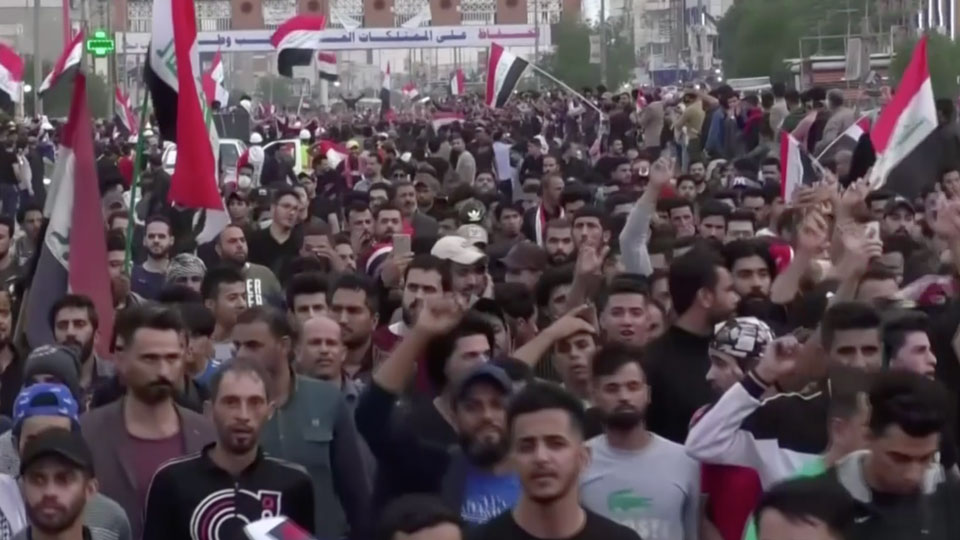
"After the US-led coalition failed to find any mass destruction weapons of Saddam Hussein, they changed the pretext of the war to a new one which is to spread democracy," Kaab says. "This is the democracy made by the USA. They have made many mistakes in their way of bringing the democracy. My personal view is that any democracy should be built from within the nation, not forced from outside."
Challenging of "Muhasasa"
The system the US installed in 2003 is called Muhasasa in Arabic. Kaab says despite the intention behind it, in practice it impeded progress. The idea was to ensure proportional government representation for Iraq's Sunnis, Shias, Kurds and other ethno-sectarian groups.
Kaab points to some illustrations he drew to explain what went wrong: "There is an American bus, which has normally only one steering wheel and one driver who is responsible for choosing the direction. But when the US sent it to Iraq, the bus has many steering wheels because, as they said, we have Shia, Sunni, Kurds, Turkmen, and so on. That means we cannot know where the bus will travel, nor what direction it will take. Eventually it will go nowhere."
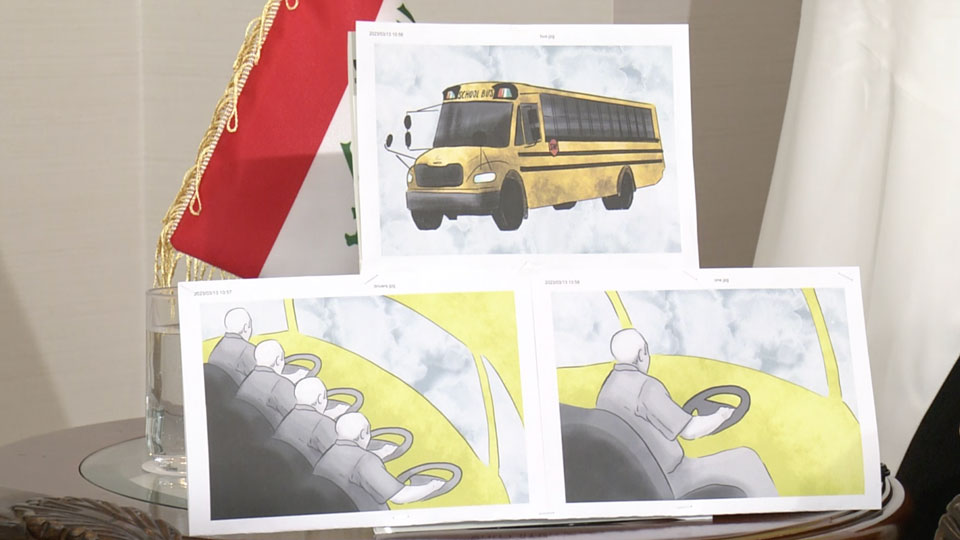
The ambassador says the system does not factor in that, historically, Iraqi culture respects and acknowledge social diversity.
"We as a nation, Iraq, the land of Mesopotamia, since Babylonian empire were ready to receive any foreigners, whatever religion he has, whatever God he has with him, whatever skin color he has, he was welcomed and received."
Kaab has his own ideas about how the Iraqi political system could be reformed. "It's a process which takes time," he explains. "The political parties ... should respond properly to the Iraqi people and to the difficulties we face every day, such as corruption or security issues. It is in process and definitely the political parties will change themselves. They have no choice."
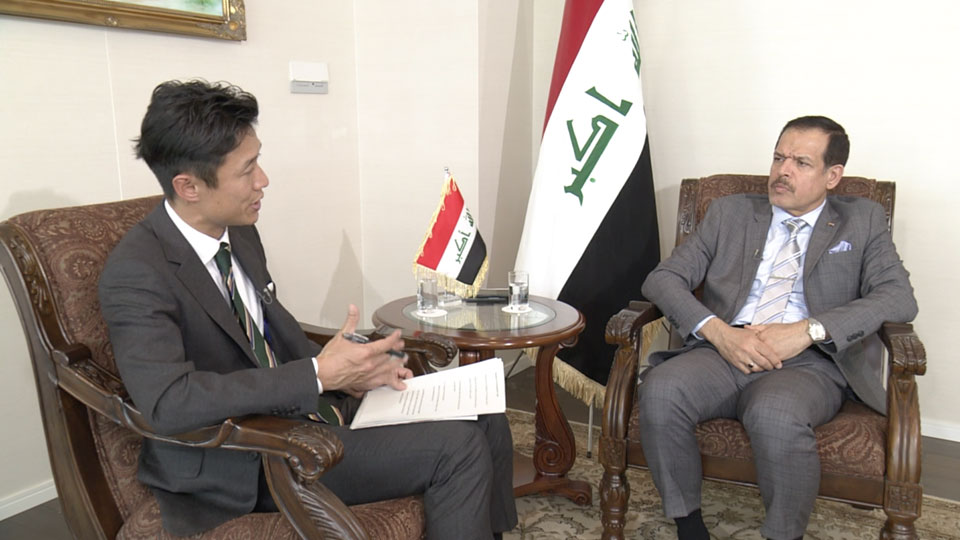
Lessons to learn
Just before Russia invaded Ukraine in February 2022, Russian President Vladimir Putin made a speech in which he said the US had violated international law. He gave the invasion of Iraq as one of the worst examples.
Ambassador Kaab says that informs the invasion of Ukraine. "In 2003, Kofi Annan was the UN Secretary General. Mr. Annan said... the American invasion of Iraq was illegal, was not in accordance with the UN charter. This violation definitely will be used as pretext for others like Russia.
"If you give yourself this right, why you do not expect others will use it? It's a matter of power."
"Iraq is no longer a land of war"
Despite the many challenges, Ambassador Kaab sees a hopeful future for his country. In January, Iraq hosted the 25th Arabian Gulf Cup football tournament. It was the first time in more than 40 years that Iraq had hosted an international sporting event. The home team claimed the title.
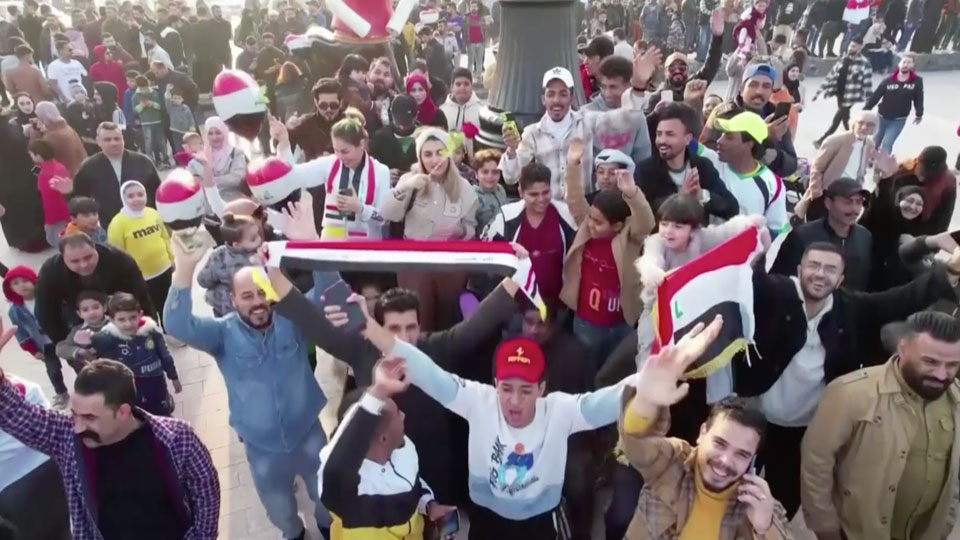
Kaab notes the event's success reflects a safer environment. "For the two weeks of this tournament, there was no incident, no security issue. That's a very, very good sign that Iraq is really secure. We hope that will open a new page, a better reputation for Iraq and maybe give a push for economic development. It shows Iraq as a very peaceful and life-loving community where people just want to live peacefully and enjoy their life."
Kaab shares a message that "Iraq is no longer a land of war" during official meetings and seminars, including school visits around Japan. He remains realistic about the ongoing challenges and hurdles, but at the same time, is optimistic that Iraq will rebound. He and his fellow Iraqis have the power to rebuild their country from within, one step at a time.
